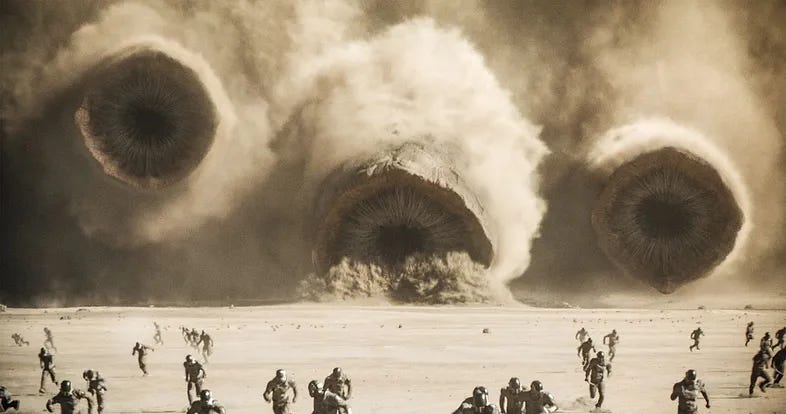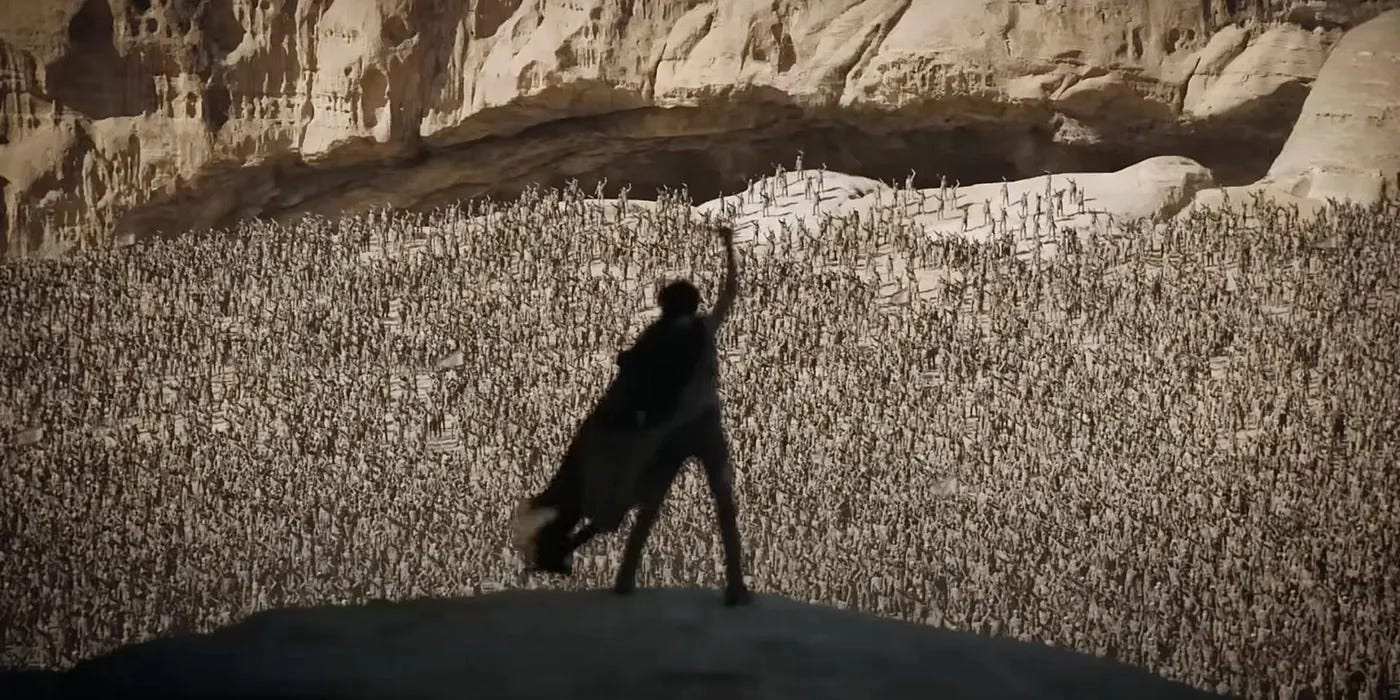Review: Dune: Part Two
Epic War, Religion, and the Struggle for Power over Arrakis.
We are back on Arrakis, as Denis Villeneuve once again transports us to the desert planet in his science fiction epic, Dune: Part Two. The film continues the story of young nobleman Paul Atreides and his fight against both the malevolent House Harkonnen and the fanaticism of a people who’ve elevated him to a messianic figure.
Based on Frank Herbert’s iconic sci-fi series, Dune propels us more than 20,000 years into the future, where humanity exists in the year 10,191 After Guild. A past war against artificial intelligence has led to a total ban on computers, with new superhuman abilities filling the void. At the heart of it all is the psychoactive mineral “Spice,” found only on Arrakis. Spice not only enables glimpses into the future but is crucial for space travel across vast distances. In this universe, control of Spice means control of survival.
In Dune: Part One, we witnessed Paul (Timothée Chalamet) and House Atreides assume control over Arrakis as part of a trap set by the Emperor (played here by Christopher Walken). The scheme allows the sinister Baron Harkonnen (Stellan Skarsgård) to stage a brutal attack, decimating House Atreides. Paul and his mother, Jessica (Rebecca Ferguson), escape to the desert, where they find refuge among the Fremen people — a society awaiting a prophesied savior.
In Dune: Part Two, Paul and Jessica join the Fremen led by Stilgar (Javier Bardem) and Chani (Zendaya). As far as they know, they are the last survivors of House Atreides, but Paul’s visions reveal an ominous future. The Fremen, manipulated into believing in a foretold messiah, see him as this figure, yet Paul’s glimpses of a galaxy-wide holy war with himself at its center terrify him.
Where Dune: Part One felt serene and meditative, introducing a universe of religion, power, and environmentalism, Part Two takes on the feel of a war film with intrigue and political machinations. The story echoes elements of Christianity, Islam, and Buddhism, set against massive battles and the dangers of religious fervor.
For fans of Herbert’s book, Villeneuve’s adaptation is true to the source, though it makes certain narrative adjustments that are expected in any film adaptation. Some roles are merged, and a few scenes are omitted, adding a fresh perspective for longtime fans. Even with these changes, Dune: Part Two is an impressive cinematic feat, spanning nearly 2 hours and 50 minutes.
If you enjoyed the first, you’ll find this one equally compelling. It deepens Paul Atreides’ inner conflicts and his external battles, as he confronts both his enemies and his own shifting identity. Chalamet’s portrayal of Paul remains gripping, while Ferguson’s delivers both mystery and gravitas as Paul’s conflicted mother Jessica, highlighting their complex mother-son relationship. Zendaya brings layered skepticism to Chani, Paul’s Fremen love interest, marking a subtle but effective departure from the novel. Bardem’s Stilgar offers a rare touch of humor threaded with tragic inevitability, rooted in his blind faith and growing fanaticism. And not least, Austin Butler stuns as the sinister, homicidal Feyd-Rautha Harkonnen, a chilling new presence to the screen.
Villeneuve’s distinctive style — epic, poetic, and visually arresting — is enhanced by Hans Zimmer’s powerful score, reinforcing Dune: Part Two as a masterpiece to be experienced alongside its predecessor. This film solidifies Dune as a vast and stunning sci-fi epic. And we’re not done yet. As I write this, director Denis Villeneuve is hard at work on the third and final film of his Dune trilogy.





